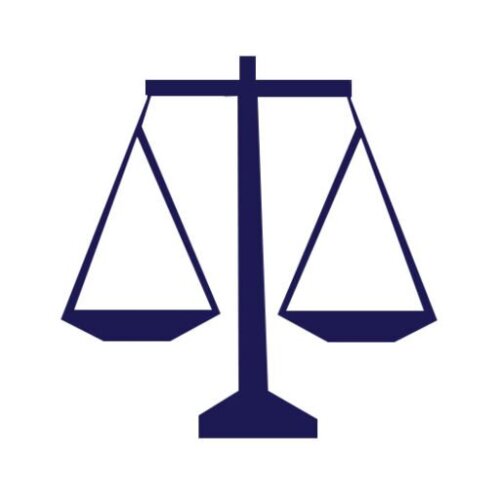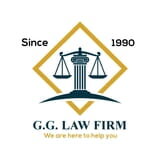Best Toxic Mold Lawyers in Greece
Share your needs with us, get contacted by law firms.
Free. Takes 2 min.
Or refine your search by selecting a city:
List of the best lawyers in Greece
About Toxic Mold Law in Greece
Toxic mold refers to certain types of mold that produce toxins, which can be harmful to human health. In Greece, awareness around the impacts of toxic mold is growing, particularly as it relates to health and housing conditions. Although not heavily legislated, issues concerning toxic mold often fall under property, health, and environmental laws. Understanding the legal landscape can help property owners, tenants, and businesses address mold-related disputes more effectively. When mold-related disputes occur, they often relate to property damage claims, tenant-landlord disputes, and health implications.
Why You May Need a Lawyer
Legal assistance may be necessary when dealing with toxic mold for several reasons:
- Property Damage: Homeowners or landlords may need legal help to claim damages from insurance companies if their property is affected by toxic mold.
- Tenant-Landlord Disputes: Tenants may seek legal assistance to compel landlords to address mold issues or terminate leases.
- Health Concerns: Individuals who have suffered health issues due to exposure may need legal advice for compensation claims.
- Contractual Disputes: Construction issues that lead to mold growth might lead to legal disputes over responsibility.
Local Laws Overview
The legal framework in Greece related to toxic mold involves various aspects of property and health law:
- Property Law: Owners have a duty to maintain safe habitable properties, which includes addressing mold growth.
- Health Regulations: There are public health mandates requiring landlords to ensure indoor air quality meets specific standards.
- Environmental Law: Though broader, some regulations indirectly address mold through environmental standards.
- Consumer Protection: Laws that protect tenants and homebuyers from hazards due to construction deficiencies.
Frequently Asked Questions
1. What is toxic mold?
Toxic mold refers to mold species that produce mycotoxins, which can be harmful to human health. Common examples include Stachybotrys chartarum.
2. How can toxic mold affect my health?
Exposure can lead to symptoms like respiratory problems, allergies, and headaches. Long-term exposure might result in more severe health issues.
3. What should I do if I suspect toxic mold in my property?
Document the evidence with photos, have a professional inspection conducted, and report the issue to your landlord or insurance company.
4. Can a landlord in Greece be held responsible for mold problems?
Yes, if it’s proven that the landlord neglected maintenance or failed to rectify mold problems after being notified, they may be held liable.
5. How can a lawyer help me with a toxic mold issue?
A lawyer can help you navigate tenant-landlord laws, file necessary claims, and represent you in court if needed.
6. Are there specific prevention laws for landlords to prevent mold in Greece?
While specific prevention laws are not detailed, landlords have a general obligation to maintain the habitability of a property.
7. Can I get compensation for health issues caused by toxic mold?
Yes, if you can prove a direct link between the exposure and your health issues, you may be entitled to compensation.
8. What evidence is needed for a toxic mold claim?
You will need inspection reports, photographs, medical reports linking health issues to mold exposure, and any correspondence with landlords or responsible parties.
9. How long do I have to file a claim related to toxic mold?
Under Greek law, you generally have a five-year period to file property-related claims, but specifics can vary, so consult with a lawyer promptly.
10. How do I choose the right lawyer for a toxic mold case?
Look for a lawyer experienced in environmental law, property disputes, and personal injury, preferably with a track record of handling mold-related cases.
Additional Resources
Those seeking more information and assistance can consult the following resources:
- Ministry of Environment and Energy: Offers guidelines on environmental standards.
- Hellenic Consumer's Ombudsman: Can provide advice for tenant-landlord disputes.
- Local Bar Associations: Can help you find specific legal experts.
- Health Agencies: For medical advice related to mold exposure.
Next Steps
If you require legal assistance regarding toxic mold:
- Document Everything: Gather as much evidence as possible including photographs, inspection reports, and communication records.
- Consult a Medical Professional: If mold exposure has caused health issues, seek medical advice and documentation.
- Contact a Lawyer: Look for a lawyer with experience in environmental or property law to understand your rights and options.
- Seek Mediation or Arbitration: If possible, try to resolve the issue through mediation before pursuing court action.
- Proceed with Legal Action: If necessary, your lawyer can help you file claims or represent you in court.
Understanding your rights and acting promptly can make a significant difference when dealing with toxic mold issues in Greece.
Lawzana helps you find the best lawyers and law firms in Greece through a curated and pre-screened list of qualified legal professionals. Our platform offers rankings and detailed profiles of attorneys and law firms, allowing you to compare based on practice areas, including Toxic Mold, experience, and client feedback.
Each profile includes a description of the firm's areas of practice, client reviews, team members and partners, year of establishment, spoken languages, office locations, contact information, social media presence, and any published articles or resources. Most firms on our platform speak English and are experienced in both local and international legal matters.
Get a quote from top-rated law firms in Greece — quickly, securely, and without unnecessary hassle.
Disclaimer:
The information provided on this page is for general informational purposes only and does not constitute legal advice. While we strive to ensure the accuracy and relevance of the content, legal information may change over time, and interpretations of the law can vary. You should always consult with a qualified legal professional for advice specific to your situation.
We disclaim all liability for actions taken or not taken based on the content of this page. If you believe any information is incorrect or outdated, please contact us, and we will review and update it where appropriate.
Browse toxic mold law firms by city in Greece
Refine your search by selecting a city.













